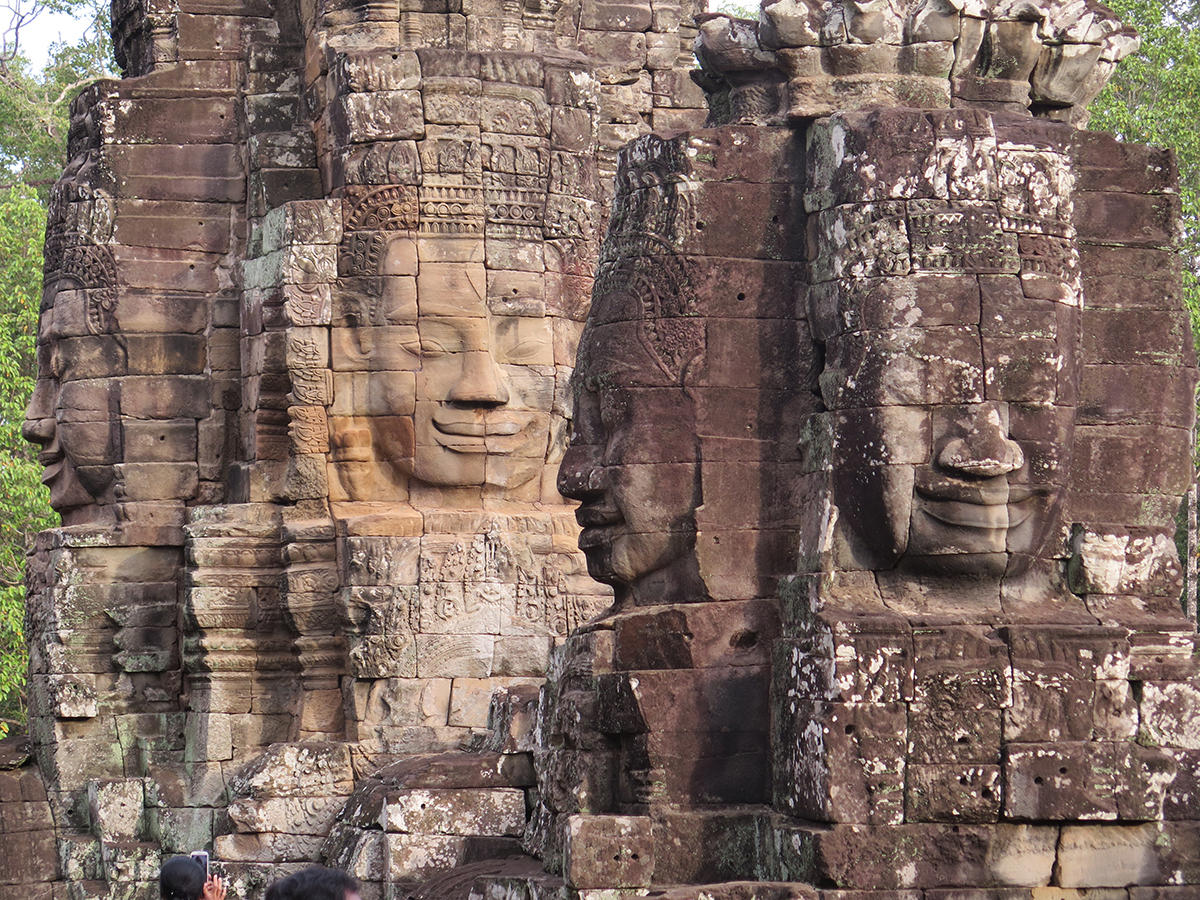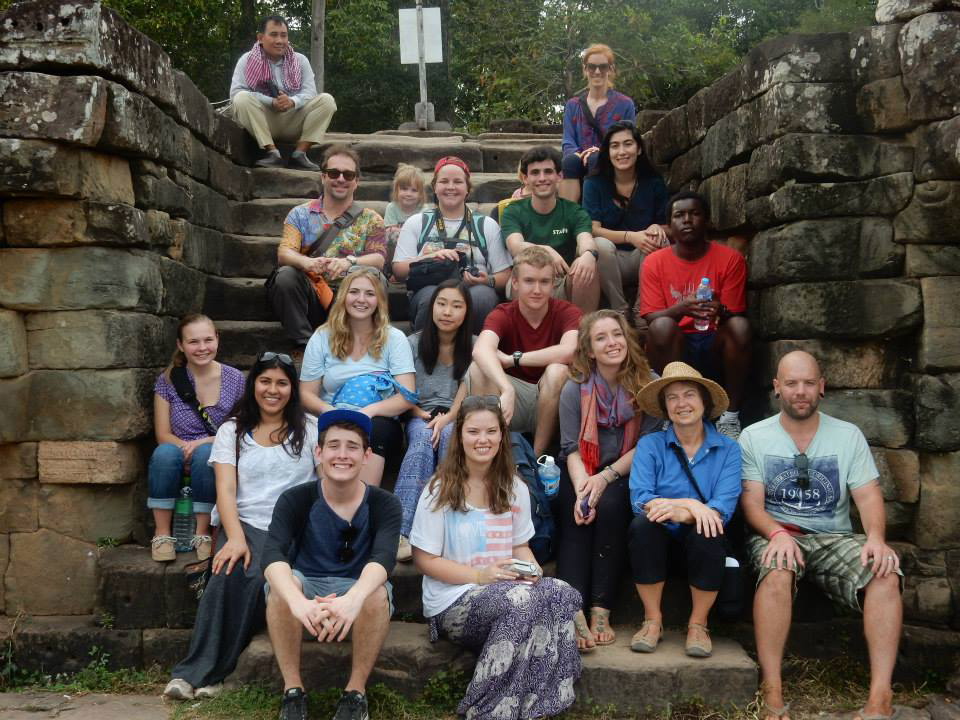Cambodia experience sows seeds for future scholars
By Daniel Aloi

For the past two years, professor of government Andrew Mertha has led students on an intensive two-week Cambodian experience for a three-credit study abroad course over winter break – Chinese Empire and the Cambodian Experience– devised in 2014 for Southeast Asia Program (SEAP) faculty.
“It matches my research interests, looking at China in the ’50s, ’60s and ’70s, into the present day,” said Mertha, who directs the China and Asia-Pacific Studies (CAPS) program.
“My last book was on Chinese foreign aid to the Khmer Rouge, and that’s the intellectual center of the course. I sought … to get students to appreciate the challenges of deriving facts from the field, and being able to analyze and interpret data,” including contradictory data, he said.
Tompkins Cortland Community College (TC3) faculty and students have traveled along each year as a service-learning experience. Cornell also partners with Cambodian organizations based in Siem Reap, providing facilities and community partnership connections. Emiko Stock and Alice Beban-France, in Cambodia researching their respective Cornell doctorates in anthropology and development sociology, served as teaching assistants.
A dozen students in all – 11 from Cornell – took part in the first trip in January 2015, and 22 traveled this year, including 10 from TC3. They visited such sites as Angkor Wat and the Genocide Museum at Tuol Sleng, a former high school used as an execution center by the Khmer Rouge. During Khmer rule in the 1970s, up to 2 million of the country’s 7 million people died or were killed, Mertha said.
“You learn so much, but it’s not a classroom setting most of the time,” said Robin Zhang ’18, an economics and CAPS major. “I realized there’s so much more to the country than most people have heard of – if anything, you’ve heard of the Khmer Rouge, but you don’t realize the extent of what happened and especially how recent it was. All of the people we met, they had personal experiences with the Khmer Rouge.”
Said Mertha: “It’s been a great experience for the students, not only to learn about the country, but it makes scholarship more three-dimensional for them. It’s helped them with other courses, and it’s created a desire to undertake other study-abroad experiences – and it seems to have created a bond with Cambodia itself.”

Noting another benefit, “the physicality of being in the field,” Mertha said: “This January, our driver used a machete to cut a path to one of the research sites that I wanted the students to experience in person.”
SEAP Director Kaja McGowan will lead the Cambodia course next January, he said.
Mertha, who took four years of Khmer language classes alongside Cornell undergraduates, believes there is a dearth of academic interest in Cambodia, something the winter course seeks to address. He is on the board of Cornell’s on-site partner, the Siem Reap-based Center for Khmer Studies, a leading scholarly organization affiliated with the Council of American Overseas Research Centers.
He says Cornell “is one of the best places in the world to study Southeast Asia. I came here as a China scholar, in 2008, but for my next project I wanted to go beyond China. Cambodia was a country that I’d always been interested in. That being said, Cambodia is often considered the runt of the litter. Maybe Laos is worse, just in terms of attention. … The less geopolitically ‘significant’ the country, the less expertise in that country.”
One goal Mertha has “is not to simply work with the established scholarship but to sow the seeds of future scholars and scholarly interests in Cambodia, which is one of the reasons why I teach courses on Cambodia and have been such a proponent of the Cornell in Cambodia course,” he said.
“If there’s enough of an interest there, if the course takes on the type of reputation I think it already has, if we can garner a critical mass of students – that could lead to finding another faculty line, or making Cambodia a larger part of SEAP. Right now it seems to be me and Hannah Phan, senior lecturer in Khmer language. We’re both trying to punch above our weight, much as Cambodia does, for its intrinsic value as a place of study.”
Media Contact
Get Cornell news delivered right to your inbox.
Subscribe